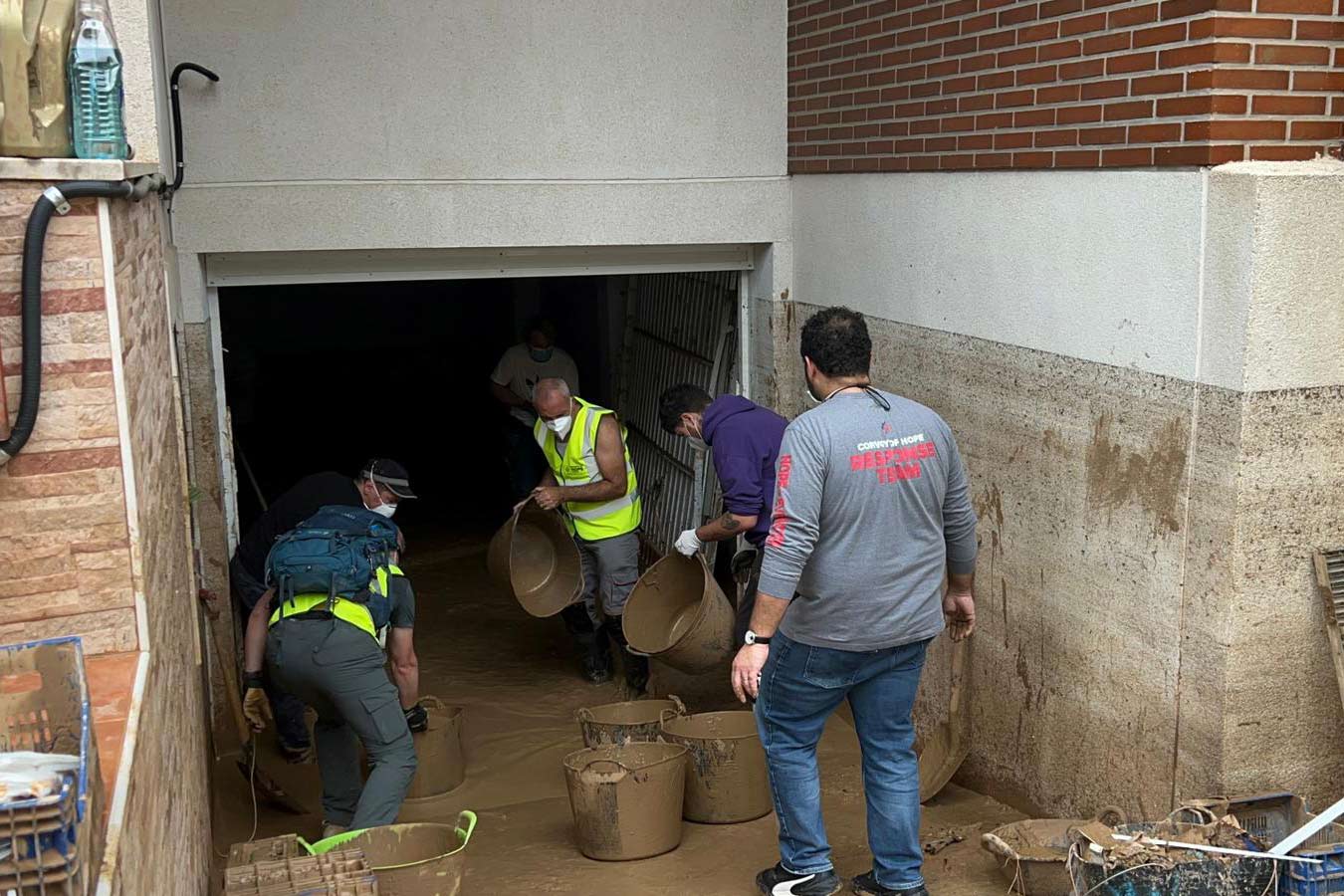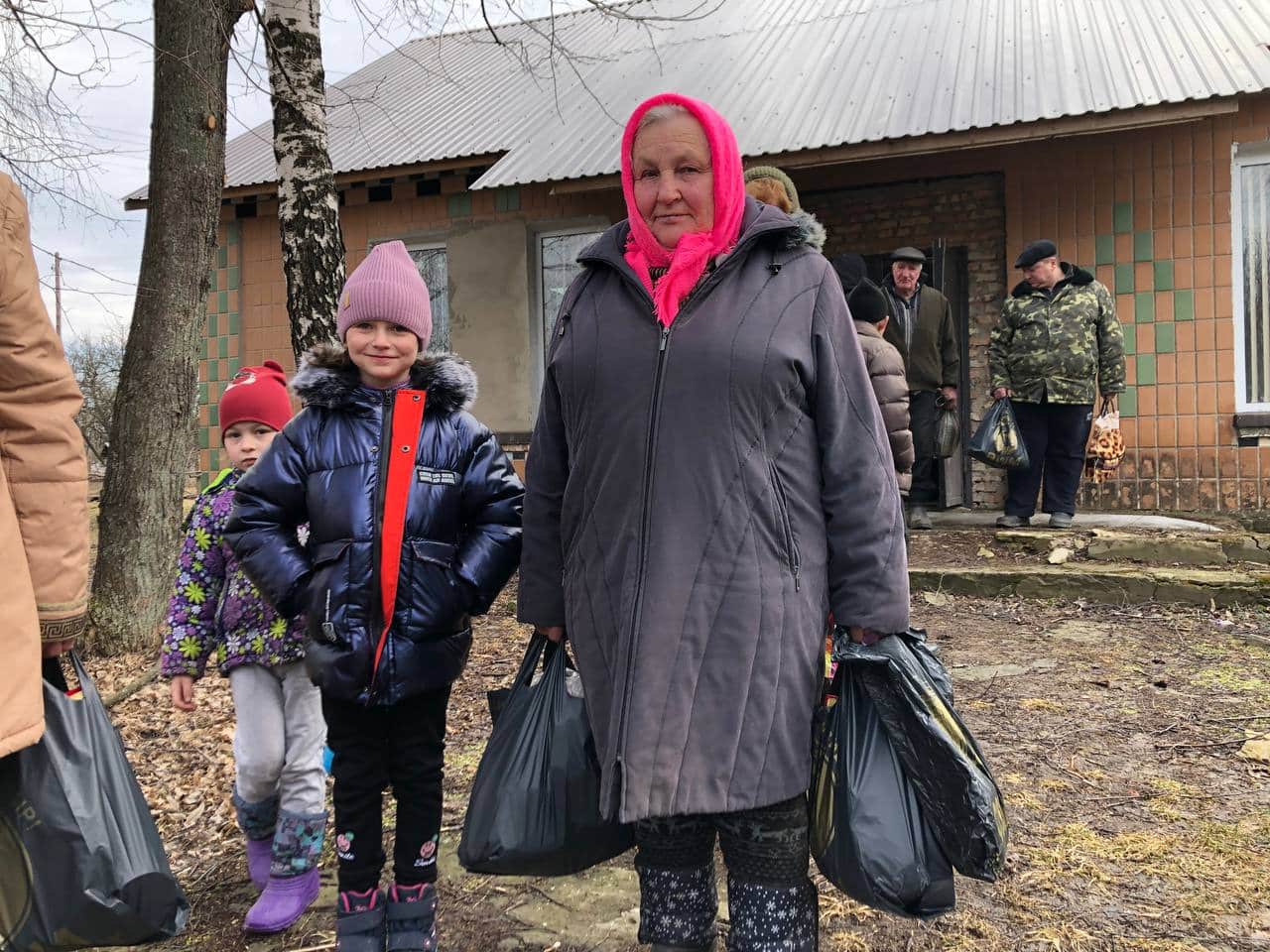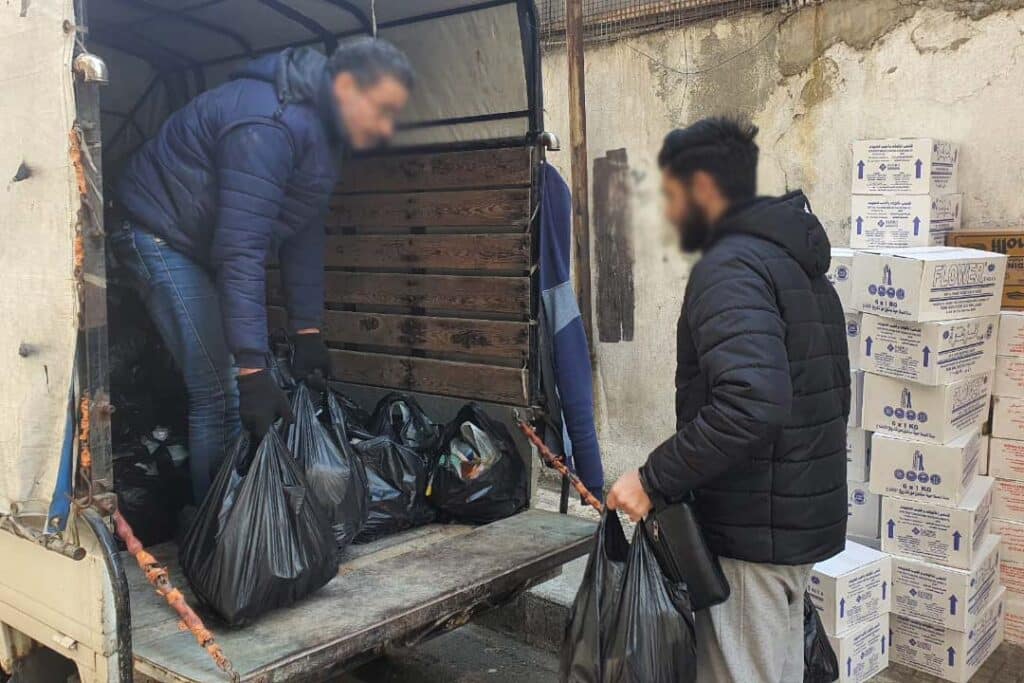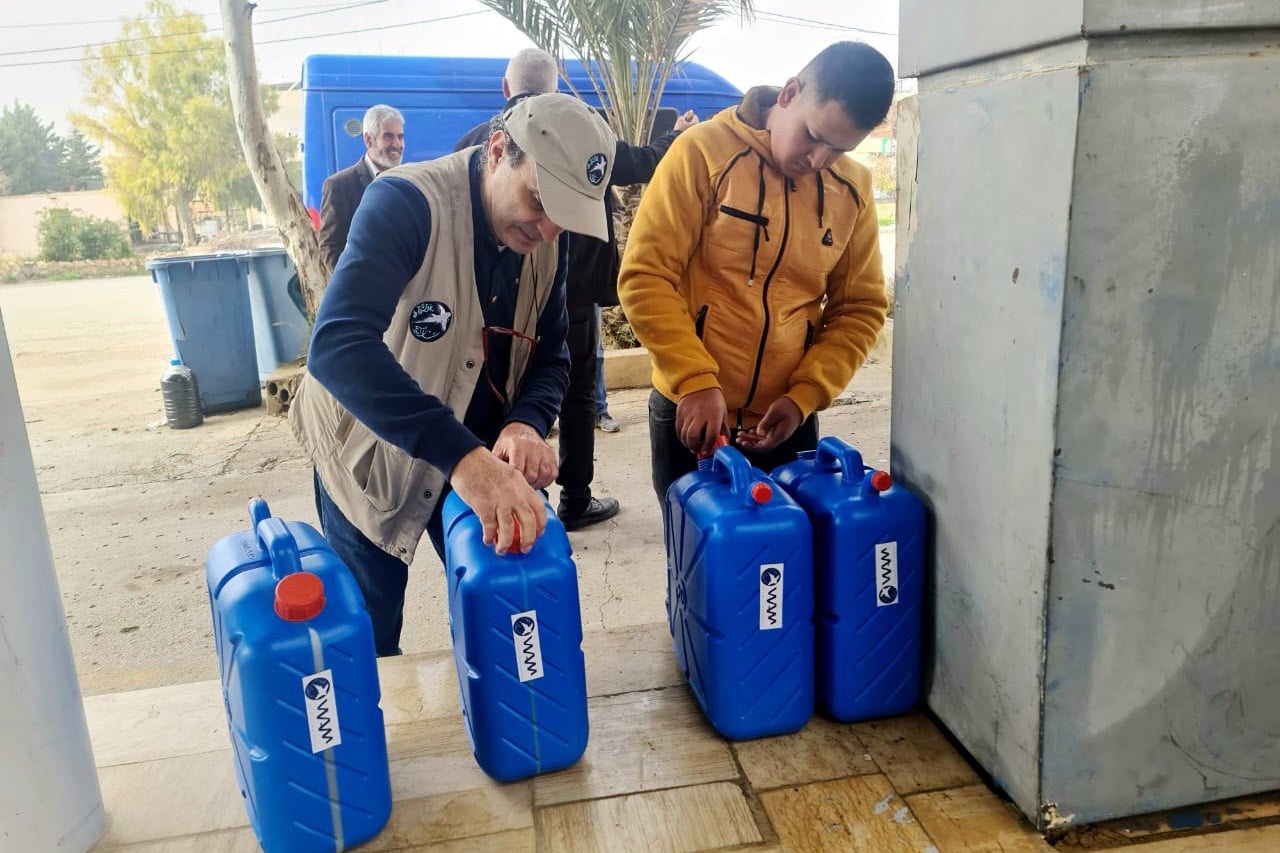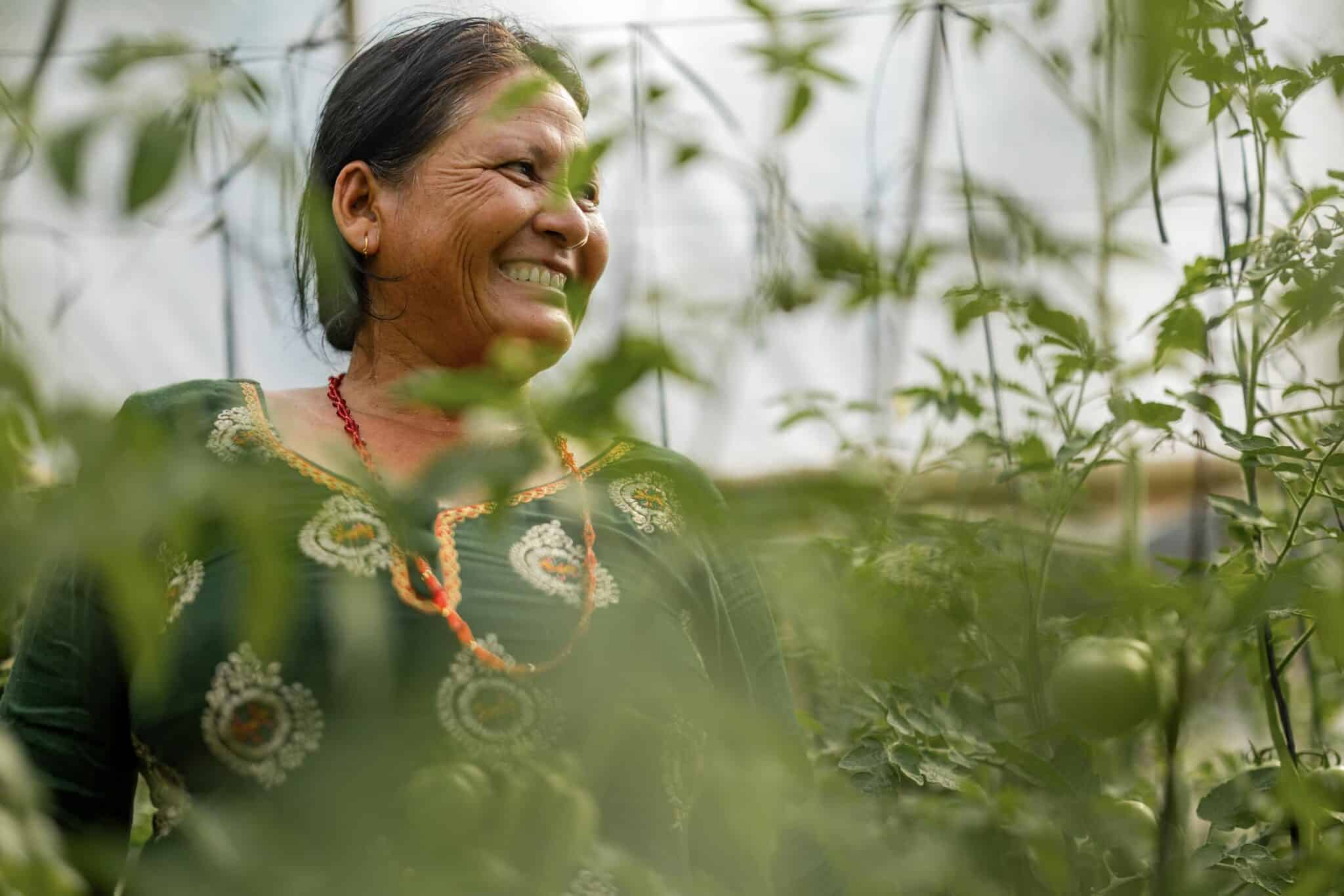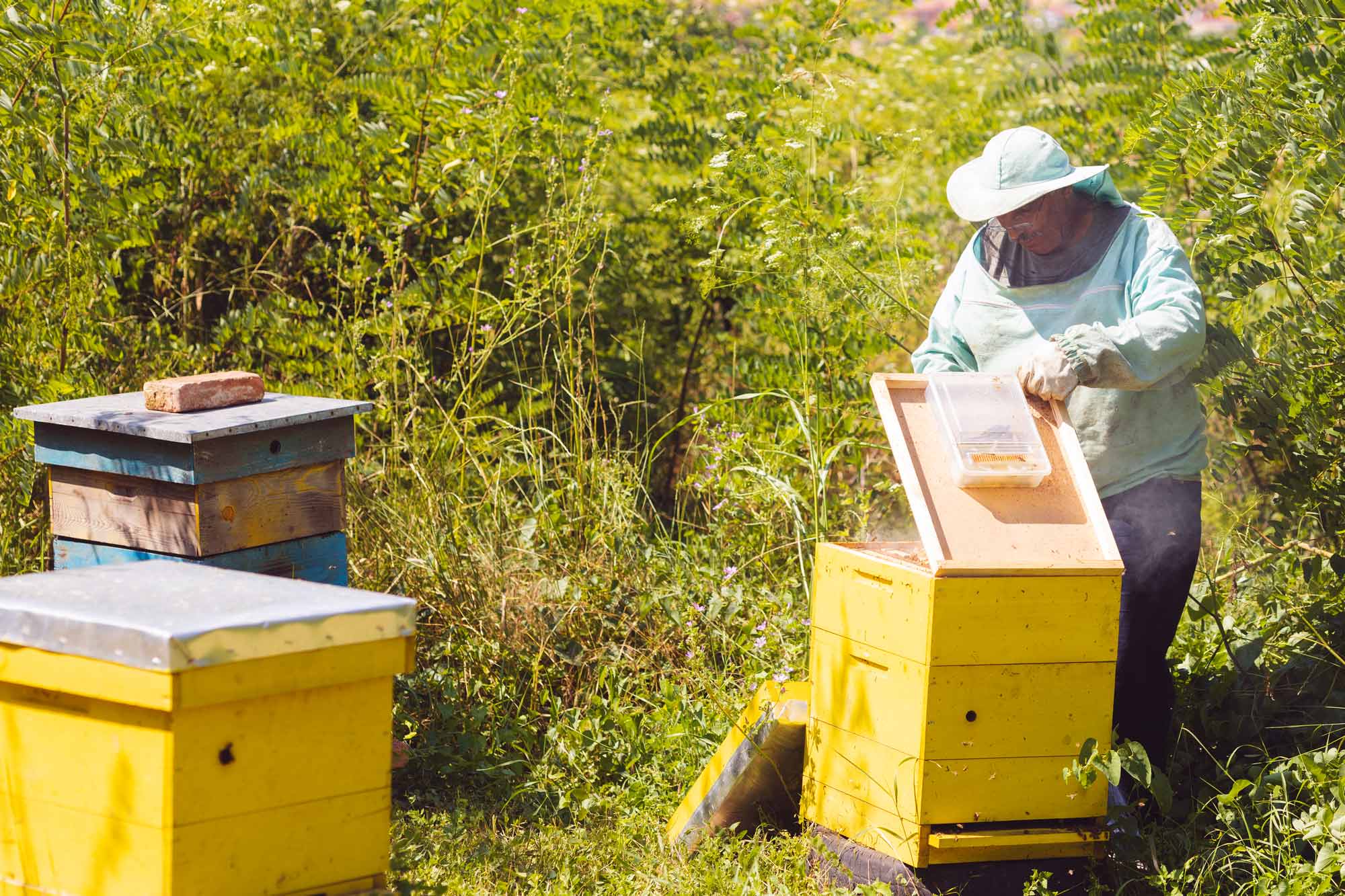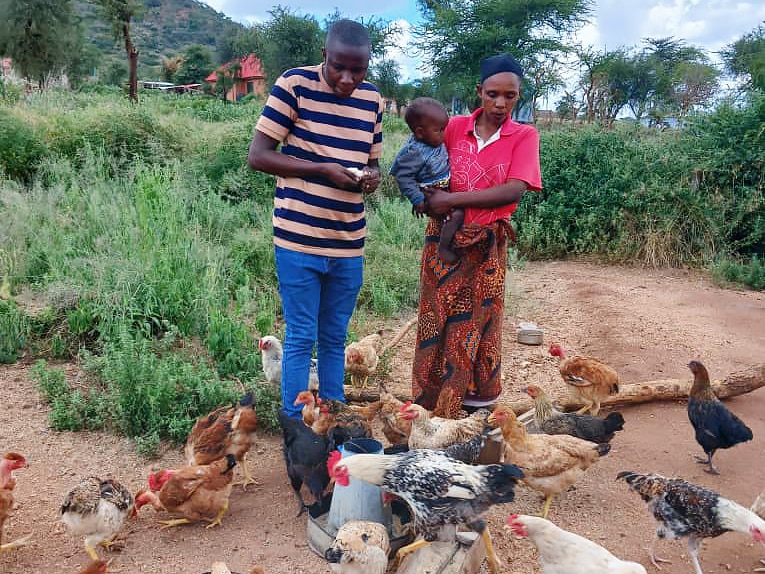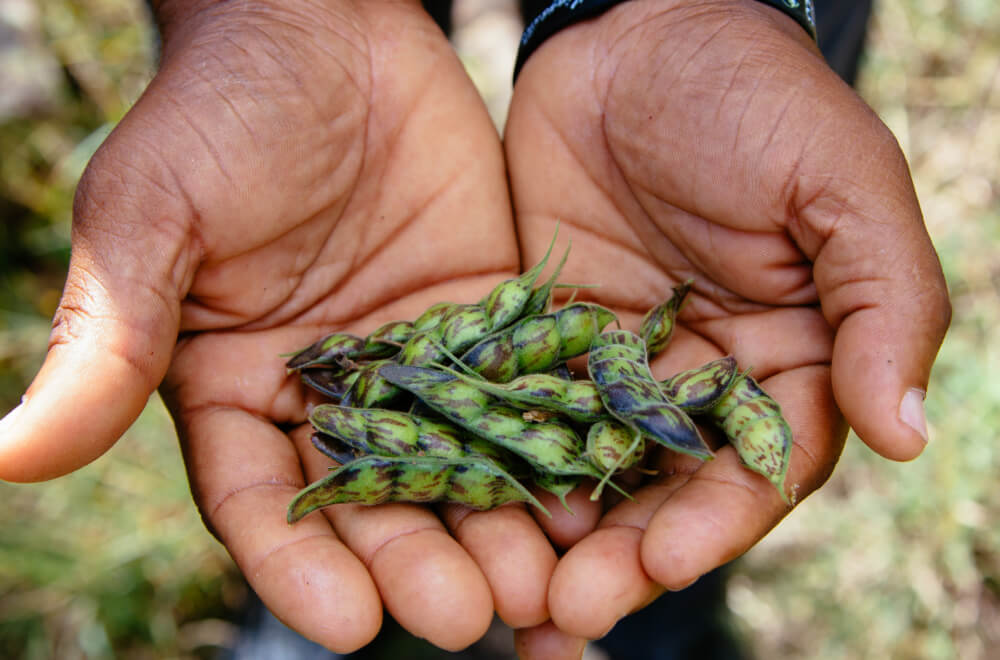
High in the mountains, Turpin is approximately 28 miles from Port-au-Prince, Haiti. Pastor Ellison, who trains local farmers, carefully sidesteps thorny burrs as he maneuvers into fields where pigeon peas, potatoes, and other vitamin-rich vegetables grow. The rich soil beneath him supports a year-round growing season, where crops are grown in short three-month stints. Here, farmers — many of them female — learn to produce crops that not only feed their families, but also provide a source of income.
“We were sometimes forced to eat everything we’d grown when money and food became scarce.”
—Rosena, Agriculture participant
Rosena, 27, relaxes in the shade near a community garden and fans herself with her hand. A slight breeze provides a respite from the heat that has produced beads of sweat along her hairline. A dusting of black soil covers her feet and ankles. Her tired but beautiful eyes tell more of a story than she vocalizes. Her hands, rough from work, appear to belong to a woman much older.
Rosena is married and has lived in Turpin for 10 years. She’s been in the local Agriculture program since it launched in 2013. Before enrolling in the initiative, she used to eat the heirloom seeds from her harvest as she and her family were going hungry, rather than save them for the next planting season.
“We were sometimes forced to eat everything we’d grown when money and food became scarce,” she says, as her posture slips and her eyes gaze toward the ground.
That’s changed since she started farming with Convoy of Hope. After farmers complete Convoy’s agriculture training — which includes how to grow more abundant, disease-free crops — each is provided with seeds.
Rosena looks out across her section of the flourishing garden with quiet contentment.
“This has changed by life,” she says thoughtfully, as she stoops to untangle a stubborn weed from the freshly tilled soil. “I can feed my kids and sell the extra harvest to buy them what they need.”
The Agriculture initiative is just one way Convoy is going beyond the meal to address the issue of generational poverty.
“Tomorrow is something many of the children in Haiti haven’t always had the luxury to think about,” says Kevin Rose, Senior Director of Global Program. “Oftentimes, they’ve had to live in only the current moment — right here, right now — and wonder when they might eat next. We’re changing that with our initiatives.”


